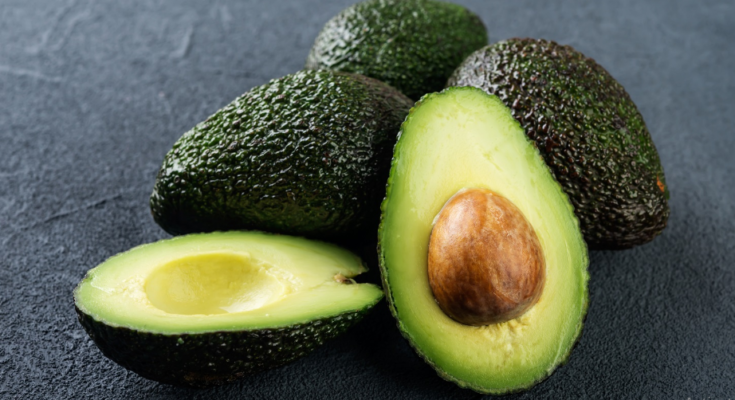Avocados are not Vegetables; See Reasons Why – Several foods that are considered fruits by botanists are part of the Vegetable Group. For example, tomatoes, avocados, eggplants, cucumbers, green peppers, zucchini, butternut squash, and others are classified as fruits by botanists because they are the fleshy plant part surrounding its seeds.
However, for nutritional and culinary purposes, these foods are considered to be vegetables rather than fruits. The nutritional classification of foods considers not just botany, but a food’s nutrient content, use in meals, and taste.
The Fruit Group includes botanical fruits that are sweet and/or tart in taste and are usually thought of as fruits by consumers. The Vegetable Group, on the other hand, includes those botanical fruits that are not sweet or tart and are usually consumed along with other vegetables or as a vegetable.
Botanically, fruits and vegetables are classified depending on which part of the plant they come from. A fruit develops from the flower of a plant, while the other parts of the plant are categorized as vegetables. Fruits contain seeds, while vegetables can consist of roots, stems, and leaves.
What foods are in the Vegetable Group?
Any vegetable or 100% vegetable juice counts as part of the Vegetable Group. Vegetables may be raw or cooked, fresh, frozen, canned, or dried/dehydrated; and may be whole, cut-up, or mashed.
Vegetables are organized into 5 subgroups based on their nutrient content:
dark-green vegetables which include broccoli, collard greens, Spinach, and kale, beans and peas, starchy vegetables, red and orange vegetables which include corn squash, carrots, pumpkin, tomatoes, and sweet potato, and other vegetables.
What foods are in the Fruit Group?
Any fruit or 100% fruit juice counts as part of the Fruit Group. Fruits may be fresh, canned, frozen, or dried, and may be whole, cut-up, or pureed. Visit the Fruits Group page for more information on fruits.
While avocados are often prepared with salt and spice and consumed like, and alongside vegetables, avocados are biologically fruits since they contain seeds and develop from the ovary of a flowering plant. The avocado fruits grow on trees.
What might be even more surprising is that avocados are considered single-seeded berries in the same family as sassafras, the bay laurel, and various species of cinnamon tree.
Confusion persists because of their savory taste, culinary applications, and the fact that they don’t fall neatly into either fruit category. For example, while avocados are generally classified as berries, they have a single seed, so some sources classify avocados as drupes.
The existence of a fleshy endocarp, while tiny and bearing little resemblance to other berries, such as blueberries, strawberries, or blackberries, is the final deciding factor that classifies them as a berry.
Did You Know?
Avocados are virtually the only fruit with good monosaturated fat and polyunsaturated fat. Plus, avocados are naturally sugar-, sodium-, and cholesterol-free. Healthy avocados contribute 5g of monosaturated fat and 1g of polyunsaturated fat per 50g serving (one-third of a medium avocado).
Over 75% of the fat in an avocado is unsaturated, making it an excellent substitute for foods high in saturated fats, such as butter and mayonnaise. According to the Dietary Guidelines For Americans, replacing saturated fats or trans fats with unsaturated fats can reduce bad LDL cholesterol levels in the blood.
Avocados are a great cholesterol- and sodium-free alternative to processed foods. Healthy avocados are a good source of nutrients such as fiber, folate, vitamin K, pantothenic acid, and copper.
Because they contribute nearly 20 vitamins, minerals, and phytonutrients while also serving as a source of good fats (6g per50g serving), the avocado fruit is a satisfying and healthful addition to a balanced diet
Many people enjoy avocados for their delectable and adaptable taste. Because they are not the typical sweet fruit, avocado is a fruit versatile enough to be used in various recipes.
However, the nutritional value of what makes it so popular. Avocado has a seed surrounded by what’s called the pericarp, which consists of three layers, one of which is a fleshy edible layer, which qualifies it as a fruit. There are two types of fleshy fruits: drupes and berries. Avocados fall into the berry category because they have a fleshy edible layer.
Benefits of Avocado
-
Boosts Satiety
Eating healthy fats helps slow stomach emptying, which keeps you full longer than usual and delays the return of hunger. This satisfied feeling is known as satiety. Avocados, whose fat content primarily comes from heart-healthy monounsaturated fatty acids (MUFAs), fit that bill. Adding half of an avocado to your meal may significantly boost satiety for up to five hours.
-
Helps Manage Body Weight
The notion that eating fat makes you gain weight is wrong. Eating healthy fats is a savvy weight management strategy. Having one avocado a day in a calorie-controlled diet for 12 weeks, while adding fat and calories, didn’t prevent weight loss.
Plant-based fats like those in an avocado provide antioxidants and fight inflammation, which has been linked to healthy weight management. Eating avocados regularly may help you to maintain a healthy weight, even without eating fewer calories. Regular avocado eaters generally have a more nutritious diet—consuming more veggies and fruits and less refined foods—and have lower body weight and a smaller waist circumference than those who don’t eat avocados.
Avocados increase your soluble and insoluble fiber intake. Soluble fiber slows down digestion and the absorption of ingested fats and carbohydrates. Insoluble fiber, on the other hand, adds bulk to your stool and helps to eliminate digested food from your intestines.
Over time, eating avocados reduces the ratio of visceral fat to subcutaneous fat, which is found just under the skin. This reduction means fat is being redistributed away from the organs.
-
Protects Your Heart
Consuming an avocado has heart-protective effects by improving your lipid profile. Eating one avocado a day for five weeks reduces total cholesterol, lowers “bad” cholesterol—low-density lipoproteins or LDL—and raises “good” cholesterol—high-density lipoproteins or HDL—in people who are overweight or living with obesity. Eating avocado regularly improves your lipid profile—lowering triglycerides and LDL and raising HDL.
Avocados are an excellent source of potassium—a micronutrient that helps reduce blood pressure. A balance between increasing potassium and decreasing sodium can help treat high blood pressure.
-
Prevents Diabetes Complications
If you have type 2 diabetes or insulin resistance, the higher your blood glucose level rises, the more your body produces insulin to lower your blood sugar. Adding avocado to your meals can prevent insulin and blood glucose levels from rising following the consumption of a meal. Even just adding half an avocado prevents the rise in insulin and glucose.
Avocado consumption over time may also reduce belly fat or visceral fat. Visceral fat cushions the organs in your abdominal region and is tied to a higher risk of type 2 diabetes.
Try replacing the calories from carbohydrates with avocados, not only do you get the added nutrients, but you lower your carbohydrate intake.



